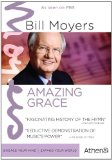| Reviews & Columns |
|
Reviews DVD TV on DVD Blu-ray 4K UHD International DVDs In Theaters Reviews by Studio Video Games Features Collector Series DVDs Easter Egg Database Interviews DVD Talk Radio Feature Articles Columns Anime Talk DVD Savant Horror DVDs The M.O.D. Squad Art House HD Talk Silent DVD
|
DVD Talk Forum |
|
|
| Resources |
|
DVD Price Search Customer Service #'s RCE Info Links |
|
Columns
|
|
|
Bill Moyers: Amazing Grace
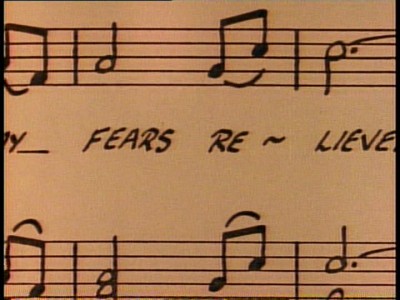
"Amazing Grace" is such a familiar song, and so frequently used for uplift in dramatic TV shows and movies, that most of us probably take it for granted and barely notice it, despite the unusualness of its being so familiar to so many people all over the world (regardless of their religious belief or absence thereof) for as long as anyone can remember. In 1990, the unfailingly thoughtful and curious TV journalist Bill Moyers created an hour-and-a-half special for PBS, Bill Moyers: Amazing Grace, that takes us beyond the famous hymn's goes-without-saying, uninvestigated familiarity for a journey that goes from the origins of the well-known lyrics through its various musical evolutions, crossing regional and racial lines all over the United States to find out in what ways it has continued to evolve and affect people, bringing together communities both secular and religious with its plaintive, earnest, humble, and seemingly universal appeal.
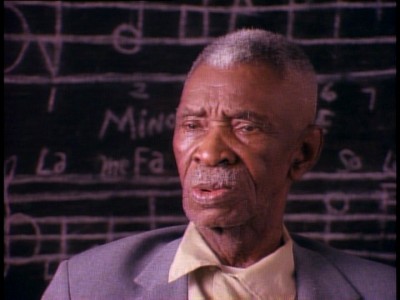
For a look at what makes the song resonate with so many, Moyers interviews world-acclaimed opera singer Jessye Norman (who once sang it a cappella in front of 70,000 rock fans at a Wembley Stadium concert honoring Nelson Mandela); folksinger Jean Ritchie, whose large, Scots-descended Appalachian clan can be heard in famous Smithsonian field recordings like those collected in The Anthology of Folk Music; nonogenarian Dewey Williams, an Alabaman African-American whose grandfather was a slave and who has been something of an "Amazing Grace" conduit, having learned and taught the hymn through the rudimentary, now near-forgotten, but initially indispensable "shape-note" method of music-reading; Johnny Cash, who included the song on his 1975 Precious Memories album; Judy Collins, who had a 1970 hit with her cover and helped transform the hymn into a surprise hippie anthem; and Harlem Boys' Choir founder/director Walter Turnbull. Each of these interviewees discusses with Moyers both the history of the song, their favorite lyrics, and why they feel it's had such a long run with no end in sight. (The preponderance of opinion seems to be that it's the lyrics, which almost anyone can identify with, more than the melody that gives it its staying power). A significant portion of screen time is focused on Turnbull's teaching the mostly underprivileged boys in his choir the discipline of rigorous vocal training in preparation for a tour that takes them to such unlikely places as Japan, where a performance of "Amazing Grace" couldn't possibly have the same contextual meaning it has for Americans, but where the audience is stirred by the song nevertheless. Cash calls "Amazing Grace" a "song with no guile," and a visit by Moyers to a contemporary group of prisoners at one of Cash's famous correctional venues--a prison in Huntsville, Texas--demonstrates that it can bring out the guilelessness in those it reaches, too: The men, thieves and murderers, speak in simple, grateful, and moving terms when asked by Moyers to recall the moment when the song's meaning became clear to them and to pinpoint what lines resonate most.
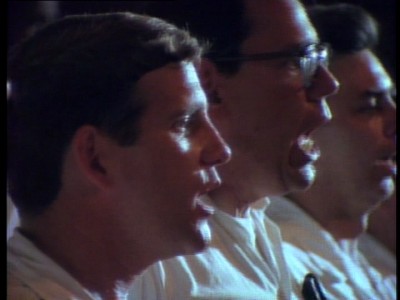
The other lynchpin of the program is its digging down to the roots of the song, which was written in the 18th century by an Englishman called John Newton, who had become a hymn-scribing vicar after he had led a sordid and mercenary life as a merchant marine and slave trader. Moyers visits Olney Parish near London, where Newton preached and wrote, and gets some insights about what the songwriter's experiences both pre- and post-salvation would have been like from some of the modern-day vicars he interviews there. Newton left behind copious journals and letters, excerpts from which are read aloud in voice-over for the program by Jeremy Irons, which go into some detail that make it clear that he both was the "wretch like me" from whose POV the lyrics are sung, and that he sincerely wanted to turn from an existence wrapped up in vice and the profit-mongering cruelties of slave trading. The irony that a hymn so meaningful in African-American history was written by someone who had been a direct participant in and beneficiary of that ignominious "enterprise" is not lost on the articulate and thoughtful Jessye Norman, herself an African-American woman who was directly impacted by the civil rights turmoils in the South during the 1960s. But she looks upon it as something wondrous, not horrific, that those are the song's origins; in discussing how the original lyrics were almost certainly not sung to the melody we know for them today, she conjectures that it would be wonderful if the repentant slave-holder's words had been joined to melodies of oppressed African-American invention in the 19th century to become a song so closely associated with the struggle for civil rights in the next, and to become in general a hymn with particularly deep meaning in the African-American cultural experience.
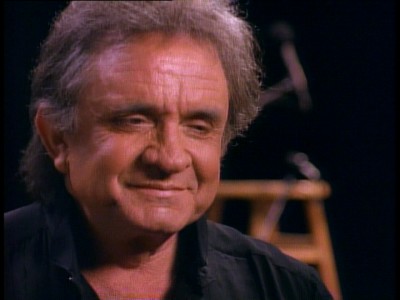
There's occasionally a surfeit of the laid-on-thick "inspirational" here; Moyers, as sharp and vital a journalistic voice as he is in our culture, has his wide-eyed spiritual side that can definitely verge on the cloying, and the footage of sunsets and mountains that his camera/editing crew resorts to in its attempts to be lyrical don't even come close to the kind of profundity and ability to move our emotions so wordlessly and deeply that he and his interviewees attribute to "Amazing Grace." But such silly missteps are brief, only for decoration, and don't really intrude upon the much more straightforward (and effective) interview footage, which thankfully constitutes the bulk of show by far. It's in those generous moments that this wildly diverse group of people, united by their connection to a song that's as free and available as air to any one of us, get to express, describe, and go into detail about what this particular piece of music means to them. That's what makes Bill Moyers: Amazing Grace something not just essential for the devout or for historians of religious music, but also of real interest to the rest of us--what takes it beyond being just about the power of this one song to being an often exhilarating reminder of the vitality and importance of music, the way it can alter you. Whether the music that changed your life is "Amazing Grace" or Beethoven or Billie Holiday or The Sex Pistols, the words these folks sometimes grope for to convey their experience (which no words can really describe, that being one of the special properties of great music) will also resonate with anyone who's ever been touched by the very human propensity to join words to melodies and share them, and I would like to think that includes every last one of us.
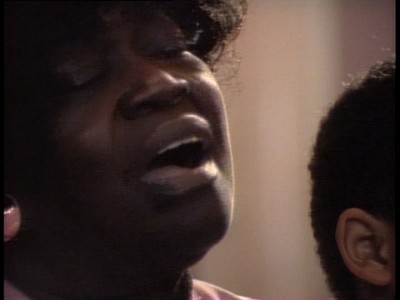
THE DVD:
This program was made just at the tail end of the era, before the HD revolution, when lower-quality, VHS-like video technology was the broadcast standard (its date of broadcast also explains the 1.33:1 aspect ratio, standard for the time), so the show--which appears to have been shot on video and 16 mm--has that fuzzy, blurry quality that we were all so used to seeing on TV before we got spoiled by HDTV. Still, the intention of digging out and presenting this kind of thing on digital media is not to improve on the original, but to present the original as it was originally seen; at that, this DVD release does a faultless job.
Sound:The Dolby Digital 2.0 stereo sound reiterates the high-quality-for-its-time audio; you could never mistake the audio presentation high-def, but it is clear, solid, and without any distortions, imbalances, or other sonic flaws that would detract from the many instances of sung and played music used throughout the program, which all come through nicely.
Extras:In addition to onscreen-text biographies of each of the singers seen on camera for the program (and one for Moyers as well), there is an hour-long Bill Moyers' Journals episode from 1994, "Pure Pete Seeger," in which Moyers visits the renowned folk singer, on the occasion of his 75th birthday, at his Hudson River Valley home for a glimpse at the contended retired-hippie life the ever-guileless Seeger lives as well as a career-spanning reminiscence that covers Seeger's humble origins and controversial stances during the Red Scare and Vietnam eras. As usual for Athena Learning releases, a 10-page booklet is bursting with an amount of information that belies its small size, including the lyrics to "Amazing Grace," a history of the pedagogical practice of shape-note singing, and an extensive list of facts/trivia relating to the song's history and presence in popular culture.
FINAL THOUGHTS:Bill Moyers: Amazing Grace is on one level about just what the title says, offering a basic history of what is probably the most famous Christian hymn in the world along with wildly varied performances of it to demonstrate its simple durability. But in offering a broad chorus of interviewees' voices expressing what the song means to them, and in tracing this piece of music's evolution from its 18th-century origins as the work of a repentant slave trader through its 19th century permutations as a Negro spiritual and on to its 20th-century status as a song that resonated with the peace, love, and civil rights movements, the program at its best offers a glimpse at the profound connection possible between human beings and the music we make (which, in turn, can be a shared, recognizable, relatable experience capable of reaching across some of the well-entrenched and ugly barriers that divide us). The fact that Moyers has chosen "Amazing Grace" as his focus doesn't mean you have to find that song in particular as powerful as do he and his multifarious interviewees in order to see very well what they're talking about. Because of its demonstrable, longstanding, and widespread power, that song in particular is used as an inspirational flashpoint, a pretext to instigate an exploration of a larger theme--that very basic but somehow ineffable way that music can stir your soul. All you need for Bill Moyers: Amazing Grace to make sense is to have felt that sensation at some blessed point in your life when your ears, brain, and heart met some catalyzing piece of music touched you deeply, which means that almost anybody who's been part of the human experience will find something in it that they can relate to. Recommended.
|
| Popular Reviews |
| Sponsored Links |
|
|
| Sponsored Links |
|
|
| Release List | Reviews | Shop | Newsletter | Forum | DVD Giveaways | Blu-Ray | Advertise |
|
Copyright 2024 DVDTalk.com All Rights Reserved. Legal Info, Privacy Policy, Terms of Use,
Manage Preferences,
Your Privacy Choices | |||||||









